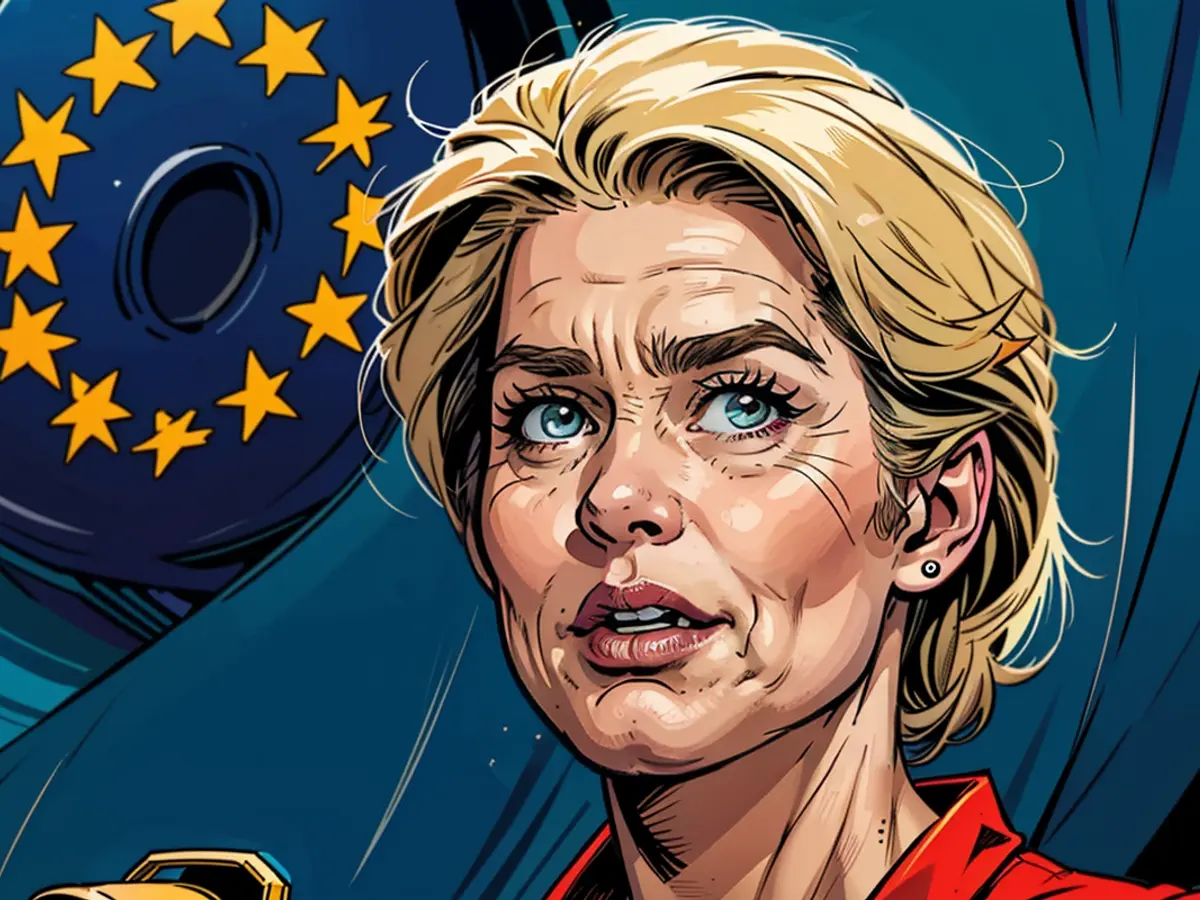Legal loophole for von der Leyen right before vote on second term
The European Court ruled that the EU Commission had unfairly withheld important information from the public regarding the 2020 and 2021 vaccine contracts with pharmaceutical companies, including potential damage claims related to vaccine shortages. (Case T-689/21 et al.)
During the pandemic, Von der Leyen led the negotiations for these contracts on behalf of the member states. The Commission ordered 2.7 billion Euros worth of vaccine doses from companies like Pfizer/BioNTech and Moderna. The plaintiffs, including German EU representative Jutta Paulus (Greens), requested access to these contracts and related documents in 2021. However, the Commission only made a redacted version available. This Decision was deemed partly invalid and erroneous by the Court.
Among the plaintiffs was German EU representative Jutta Paulus (Greens), who declared it a "victory" and stated that the ruling strengthened "transparency and control, for the future." The Commission announced it would carefully review the ruling and its implications. It could theoretically appeal to the European Court of Justice as the next highest court.
Many left-wing European politicians called for consequences for Von der Leyen. European MP Fabio De Masi from The Left (DIE LINKE) demanded that she renounce her candidacy for a second term. Co-leader of The Left, Martin Schirdewan, called the ruling a "proof" that Von der Leyen "has no values compass for transparency or moral integrity." A vote for Von der Leyen at the Strasbourg Plenary Session on Thursday meant "five more years of backroom deals," he warned.
The CDU/CSU group in the European Parliament urged their representatives to support Von der Leyen. In the upcoming vote, they argued that it was about "stability or chaos, about choosing between a globally respected, experienced leadership figure or immense uncertainty in politically challenging times."
If Von der Leyen did not receive an absolute majority of 361 out of 720 votes in the plenary session, the EU, according to numerous politicians, faced an institutional crisis. European heads of state had endorsed the 65-year-old for a second term with a large majority in late June. This followed the results of the European elections, in which Von der Leyen's European People's Party (EPP) was the strongest force.
Due to expected dissenters among conservatives, Von der Leyen had been negotiating with other factions in recent weeks to secure her re-election. According to reports from the Parliament, she could count on votes from the Greens and parts of the far-right faction. This is problematic, as Chancellor Olaf Scholz (SPD) and others had made it a condition that she not form alliances with parties to the right of the CDU/CSU.
During her first election in 2019, Von der Leyen received only nine more votes than required. In exchange for their support, the other parties now demanded extensive concessions in the program of the next Commission, which Von der Leyen presents to the deputies shortly before her election. The Greens are demanding commitments on climate protection, while the FDP wants a renunciation of new European community debts.
- The EU Commission's failure to provide full transparency over the vaccine contracts with pharmaceutical companies, including Pfizer and Biontech, led to the 'Mandate' being challenged in the European Court.
- The 'slack' and 'flab' in the Commission's handling of the information request resulted in the 'Decision' being partially overturned, emphasizing the need for improved transparency.
- European Parliament member Jutta Paulus (Greens) celebrated this 'victory', stating that it strengthened 'control' and 'transparency', setting a precedent for the 'future'.
- The 'Court of the European Union' ruled that the Commission's withholding of information breached legal obligations, resulting in the 'erroneous' and 'partly invalid' 'Decision'.
- The political fallout from the ruling saw German EU representative Fabio De Masi (DIE LINKE) demand that Ursula von der Leyen renounce her candidacy for a second term due to a lack of 'transparency' and 'moral integrity'.
- The 'CDU' urged their representatives to support Von der Leyen's re-election, arguing that choosing 'stability' over 'chaos' during 'politically challenging times' was crucial for the 'future' of the EU.
- if Von der Leyen did not secure an absolute majority of votes in the plenary session, the 'European Union' faced an 'institutional crisis', as many heads of state had already endorsed her for a second term.
- Due to expected dissenters among conservatives, Von der Leyen had been negotiating with other factions to secure her re-election, potentially taking votes from the 'CDU/CSU' and aligning with parties like the 'Greens'.
- During her first term, Von der Leyen obtained just nine more votes than required, and now, in exchange for their support, other parties demanded 'extensive concessions' in the next Commission's program, such as commitments on 'climate protection' and renouncing new 'European community debts'.







